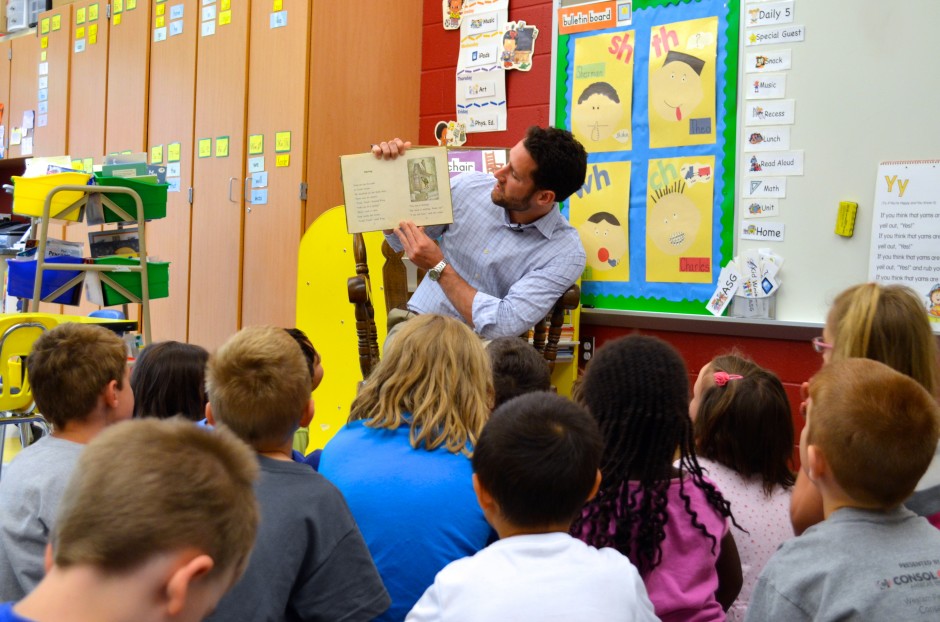This post first appeared on the Public Philosophy Journal. It has been reprinted by permission from the author, Michael Burroughs, Assistant Director of the Rock Ethics Institute.
As Curator-at-Large for the Public Philosophy Journal I chose to highlight a growing area of publicly engaged philosophy, namely, “pre-college philosophy” or “philosophy for/with children.”
While remaining active within the academy many professional philosophers have sought to expand access to philosophy in the US and beyond. In their pioneering works Matthew Lipman and Gareth Matthews offered robust justifications for doing philosophical work with children in K-12 schools, as well as practical guidance on how to do this work effectively. Since Lipman and Matthews a new generation of philosophers have expanded efforts to provide young people with access to philosophical instruction and training. Philosophy graduate students from numerous departments are particularly active in this work, founding philosophy outreach programs that introduce the practice of philosophy to young students. To cite just a few examples, the Philosophical Horizons Program at the University of Memphis, the UNC-Chapel Hill Philosophy Outreach Program , and the Penn State Philosophy Department Outreach Program are all led, in large part (if not completely), by dedicated graduate students. The Philosophy Learning and Teaching Organization (PLATO) boasts philosophy and education faculty, graduate student, and K-12 teachers as members and continues to advance national efforts to broaden access to philosophy in our country. These individuals and programs reveal a different kind of philosophical work and a different role for philosophers, a role that includes engaging with local communities and demonstrating the relevance of philosophy beyond the academy in our lives and education generally.
But why care about this work? There is much that can be (and has been) written in response to this question. For the moment we might consider that introducing philosophy in pre-college classrooms would be beneficial for a number of practical reasons. In an increasingly difficult job market adding philosophy classes and curricula in K-12 schools could provide much needed jobs for professional philosophers (as is already common in numerous countries around the world, such as France, Germany, and Italy, among others). Introducing philosophy to students prior to college can also help generate greater interest in our discipline and a general awareness of philosophical practice that is often lacking given the current isolation of the discipline to institutions of higher education.
But aside from these practical reasons (which are important but secondary in my mind) those of us practicing this work realize that children already do ask philosophical questions and are enthusiastic about philosophical conversations when given the opportunity to engage in them, or when given the space to be/be recognized as philosophers (as opposed to mere recipients of information and lessons). Jana Mohr Lone captures this approach to working with children well inWondering Aloud: Philosophy with Young People, as does Thomas Wartenberg in his Teaching Children Philosophy.
In practicing philosophy with younger populations we are attempting to extend a form of recognition and communication that is, at times, lacking in adult-child interactions. We work against a historical and contemporary trend in Western philosophy (among other disciplines) that represents the child as a deficient being, lacking the abilities, interests, and concerns of the (often highly idealized) adult. Adults and children are different, to be sure, but the grounds of this difference are often highly exaggerated when it comes to areas such as intelligence, rationality, responsibility, etc. But regardless of these distinctions it seems clear that philosophical ability, wonder, questioning, and investigation is not the sole province of the adult, but is also well within the grasp of children.
Many pre-college philosophers also contend that a philosophical education and related forms of pedagogy would mark a substantial improvement in pre-college education generally, both in terms of the development of important skill sets (higher order thinking, critical questioning, discussion skills, etc.) and in terms of student motivation and interest. The latter would be advanced as students are given the opportunity to engage dialogically with each other in regard to philosophical issues that are of fundamental import in their lives as developing human beings (as all of us are).
I can say from over a decade of experience working with children of just about all ages that they need not be convinced to do philosophy. Children are already interested in philosophy and practice it in their own way(s). Indeed, at some point in our lives all of us ask and seek answers to philosophical questions. Professional philosophers are only different in that they happen to make this process their life’s work. My posts this week have been a very brief introduction to resources and discussions of expanding philosophical work beyond the academy in K-12 schools. If you found these items interesting or intriguing I encourage you to continue exploring this work and join others in advancing these efforts.









Thanks for sharing these insights. I never really considered how philosophy could be relevant in a community educational context. Sounds like good work 🙂